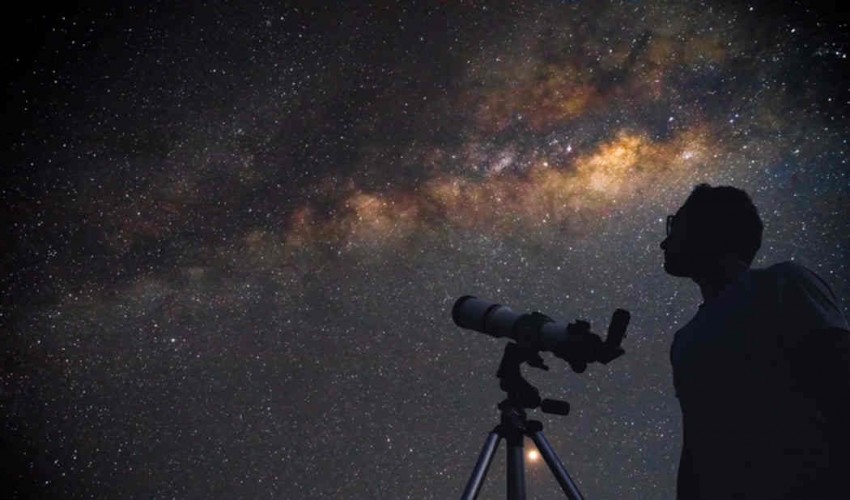
ASTRONOMY RESEARCH PAPER TOPICS
- astronomical
- astrophysics
- science
- cosmos
- planets
- biology
- telescopes
- study
To put it simply, astronomy is the study of the material cosmos that extends beyond the Earth's atmosphere. As a consequence, the subject of astronomy encompasses all that is outside of human experience. While technological advancements in telescopes, satellites, and space flight have enabled humanity to see beyond our planet's atmosphere, our knowledge of the universe as a whole is still limited. Humans' limited ability to see and explore space means that there is more that we don't know about the universe than there is that we do know for sure. Theoretical and mathematical predictions of these consequences are a large part of astrophysics and related fields. Molecular biology and mathematics are intertwined in astronomy as an interdisciplinary field. The subject's theoretical character and inclination to question human ideals implies that disagreeable conclusions are formed more frequently than not.
Papers about astronomy, especially for students who aren't familiar with the subject, may be complex and scary. If you're not a major in astronomy, there are alternative ways to learn about astronomical themes. For example, students majoring in history might study the history of astronomy by looking at themes like "Early Astronomers: Ptolemy, Aristotle, Copernicus, and Galileo." Astronomy-related topics like "Ray Bradbury and Arthur C. Clarke's Representations of Space Travel in Science Fiction" might be chosen by literature students. An interdisciplinary approach may be used to each of these cases. It may be preferable for students of astrophysics or astronomy to focus on particular phenomena like dark matter or wormholes.
First, students should decide the lens through which they will investigate the issue, and then students should have realistic expectations of the depth to which a topic may be examined within the scope of the project size chosen, while picking a topic. For example, a 100-page dissertation would have much more content than the three-page summary of the same subject matter. The following is a list of possible research topics in the field of astronomy. A student's investigation of an astronomy-related subject doesn't have to end here; there are many more options available. Any of the subjects mentioned below may be completed by the PowerPapers.com team, or you can use this list as a springboard for coming up with your own unique research questions.
- Theory of the Big Bands and the beginning of the cosmos
- Stephen Hawking's work A chronology of the world's history:
- The abyss of nothingness
- The impact of the shuttle on society Failure of the Challenger
- NASA's and space exploration's (future)
- The Apollo 11 mission to the moon
- An introduction to the field of astronomy's history
- Models of the galaxy based on Copernicus and heliocentric
- The Hubble Space Telescope.
- Stars go through a life cycle.
- The Earth's impact on the moon's orbit
- The solar system's human effect on space debris
- Comet Haley
- Human mythology and the idea of heavenly bodies
- Crunch time!
- Nicolaus Copernicus and the Roman Catholic Church
- Ptolemy, Aristotle, Copernicus, and Galileo were some of the first astronomers.
- Why go to the stars?
- There was a lot of tension between the space race and Cold War
- There is a lot of dark matter and dark energy out there.
- The Milky Way's Extinction
- Pluto
- An examination of Saturn's ring system
- Ray Bradbury and Arthur C. Clarke are two authors who have depicted space travel in their works of fiction.
- Apollo Missions: A Chronological History
- Flight into orbit with a crew in tow
- Exploration and settlement of new planets
- Wormholes
- Understanding the interplay between time and place
- Implications of the travel at the speed of light
- Fiction vs. theory on time travel
- Masses of nebulae and atoms
- Human responses to being in zero gravity
- Multidisciplinary approaches to space exploration in the field of astrophysics
- First contact and the implications of life on other planets have sparked a number of debates in astronomy.
- Astronomy-related careers
- Navigating by the stars
- How did life on Earth have its start?
- Human interpretations of the cosmos
- The climatic conditions in outer space
- Astronomy and its connection to our planet.
- Astronomy and quantum mechanics
- Exploration of space by robots
- Constellations and their interpretations by humans
- Opportunities for business in space in the future